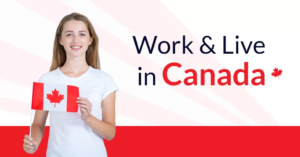Relocating to Canada with a partner entails a complex procedure, and grasping the nuances of the Canadian spousal visa is essential. This guide will encompass all facets of the spousal sponsorship process, including eligibility requirements and procedures following arrival. Canada values family reunification and provides a pathway for citizens and permanent residents to sponsor their spouses, common-law partners, or conjugal partners for immigration. The spousal sponsorship program is part of the Family Class Immigration category and aims to reunite families in Canada.
Eligibility for Sponsors
To qualify as a sponsor for a spouse or partner, one must:
1. Be 18 years of age or older.
2. Hold Canadian citizenship, permanent residency, or be a registered Indian under the Canadian Indian Act.
3. Live in Canada; Canadian citizens abroad must show they plan to live in Canada when the sponsored person becomes a permanent resident.
4. Not be on social assistance, unless it's for a disability.
5. Have the financial means to support the basic needs of the spouse or partner and any dependent children.
Eligibility for Sponsored Persons
The sponsored spouse or partner is required to:
1. Be at least 18 years of age.
2. Not be deemed inadmissible to Canada for reasons related to security, criminality, health, or other grounds.
Relationship Requirements
The relationship between the sponsor and the sponsored individual must be authentic and continuous. Evidence of the relationship comprises:
– Marriage certificate (for spouses).
– Joint bank accounts, lease agreements, utility bills, photographs, and communication records (for common-law and conjugal partners).
Types of Sponsorship
Inland Sponsorship
Inland sponsorship applies to couples who are both living in Canada. The sponsored person can apply for an Open Work Permit (OWP) while their application is being processed, allowing them to work legally in Canada.
Outland Sponsorship
Outland sponsorship applies when the sponsored person lives outside Canada. This route may also be used by those who are in Canada but prefer processing through a visa office outside Canada. This option may offer a quicker processing time depending on the visa office.
Application Process
Below is a Step-by-Step Guide on how to apply:
1. Obtain the Application Package
To obtain the necessary application package, visit the Immigration, Refugees, and Citizenship Canada (IRCC) website. The package contains:
– An instruction guide.
– Document checklists.
– The required application forms.
2. Complete the Application Forms
The sponsor and the sponsored person must fill out several forms, including:
– Application to Sponsor, Sponsorship Agreement, and Undertaking (IMM 1344).
– Generic Application Form for Canada (IMM 0008).
– Additional Dependents/Declaration (IMM 0008DEP), if applicable.
– Schedule A – Background/Declaration (IMM 5669).
– Additional Family Information (IMM 5406).
– Relationship Information and Sponsorship Evaluation (IMM 5532).
3. Gather Supporting Documents
Collect documents to prove your relationship and other required documents such as:
– Identity documents (passport, birth certificate).
– Proof of relationship (marriage certificate, photos, communication records).
– Police certificates.
– Medical exams.
4. Pay the Fees
Pay the applicable fees online, which include:
– Sponsorship fee.
– Processing fee for the principal applicant.
– Right of Permanent Residence Fee (RPRF).
– Biometrics fee (if applicable).
5. Submit the Application
Compile all forms and documents, ensure completeness and accuracy, and submit the application package to the appropriate IRCC office.
Processing Time and Decision
Processing Time
The processing time for spousal sponsorship applications varies. As of 2024, the average processing time is approximately 12 months. However, times may vary depending on individual circumstances and the visa office handling the application.
Decision
Upon approval, the sponsored person will receive a Confirmation of Permanent Residence (COPR) and, if applicable, a permanent resident visa. The sponsored person must present these documents to the immigration officer upon arrival in Canada.
Post-Arrival Procedures
Landing in Canada
Upon arrival in Canada, the sponsored individual is required to present their Confirmation of Permanent Residence (COPR) and permanent resident visa to the immigration official. The official will then check the documents and possibly ask several questions to verify the information.
Obtaining Permanent Resident Card
The permanent resident card is proof of your status in Canada. After landing, you will automatically be sent a PR card by mail. It is important to keep your address updated with IRCC.
Applying for Health Insurance
It is advisable to register for provincial or territorial health insurance promptly as the commencement of coverage differs across provinces.
Social Insurance Number (SIN)
Apply for a Social Insurance Number (SIN) to be able to work in Canada and access government services.
Common Challenges and How to Overcome Them
Proving Relationship Authenticity
To prevent visa application refusal, it is crucial to furnish substantial proof of a valid relationship. This should encompass photos, records of communication, shared financial documents, and sworn statements from relatives and acquaintances.
Incomplete or Incorrect Application
Submitting an incomplete or incorrect application may result in delays or denials. It's crucial to thoroughly review all forms and documents prior to submission. You may also want to seek advice from an immigration lawyer or consultant.
Financial Requirements
It is crucial to verify that the sponsor fulfills the financial requirements to prevent application denial. Adequate financial planning and documentation are vital.
Medical and Criminal Inadmissibility
Medical and criminal inadmissibility may result in denial. It's essential to secure medical examinations from authorized panel physicians and police clearances from each country where the individual has resided for six months or longer since turning 18.
Frequently Asked Questions
How Long Does the Spousal Sponsorship Process Take?
The process generally takes about 12 months, but times can vary depending on the specifics of each case and the visa office processing the application.
Can I Work While My Sponsorship Application Is Being Processed?
If you are applying through the inland sponsorship route, you can apply for an Open Work Permit, allowing you to work while your application is being processed.
What Happens If My Sponsorship Application Is Refused?
If your application is refused, you can appeal the decision to the Immigration Appeal Division (IAD) within 30 days of receiving the refusal notice.
Can I Sponsor My Spouse If I Am Not Living in Canada?
Canadian citizens can sponsor their spouse while living abroad, provided they plan to return to Canada once the sponsored person becomes a permanent resident. Permanent residents must reside in Canada to sponsor.
Is There a Minimum Income Requirement for Spousal Sponsorship?
Unlike other sponsorship categories, there is no specific minimum income requirement for spousal sponsorship. However, the sponsor must demonstrate the financial ability to support the spouse and any dependent children.
Tips for a Successful Application
Be Thorough and Accurate
Ensure all forms are filled out accurately and completely. Incomplete or incorrect applications are a common cause of delays and refusals.
Provide Comprehensive Evidence
Submit extensive evidence to prove the genuineness of your relationship. Include photos, communication logs, joint financial statements, and affidavits from friends and family.
Stay Organized
Keep copies of all submitted documents and correspondence with IRCC. Track your application status online.
Consult Professionals
Consider consulting with an immigration lawyer or consultant to ensure your application is strong and complete.
Follow Up
Respond promptly to any requests for additional information or documents from IRCC to avoid delays.
Conclusion
The Canadian spousal visa process demands meticulous planning, precise attention to detail, and comprehensive documentation. Understanding the eligibility requirements, adhering to the detailed application steps, and proactively tackling potential obstacles can enhance the likelihood of a favorable outcome. Family reunification stands as a fundamental aspect of Canada's immigration framework, and with adequate preparation, you can anticipate embarking on a new life chapter together in Canada.
To apply for the Canada Spousal Visa, Click here.
Read Also:












Be First to Comment